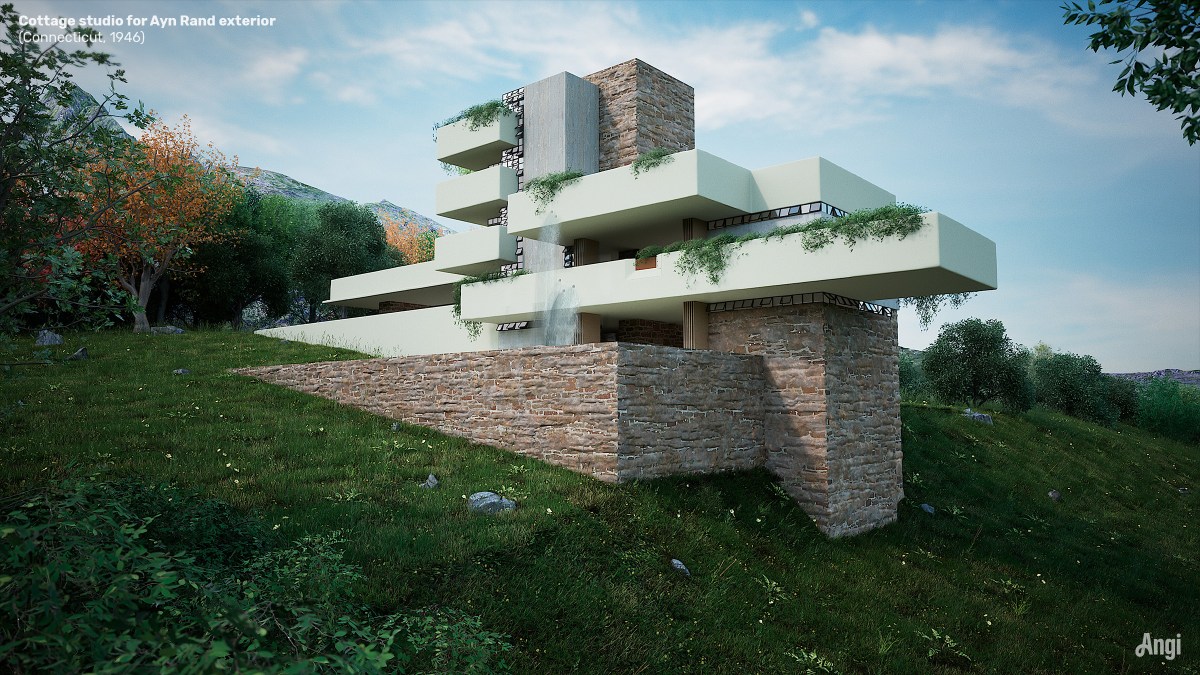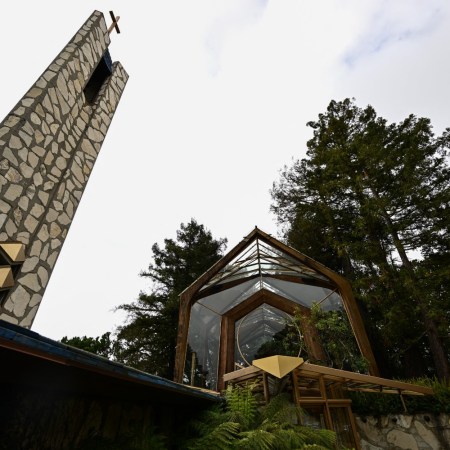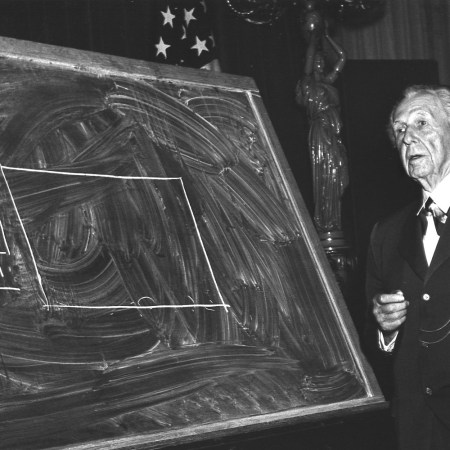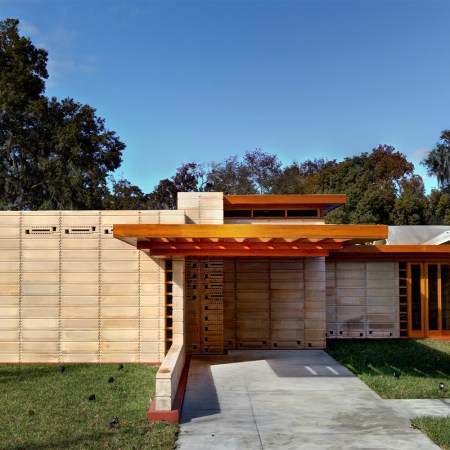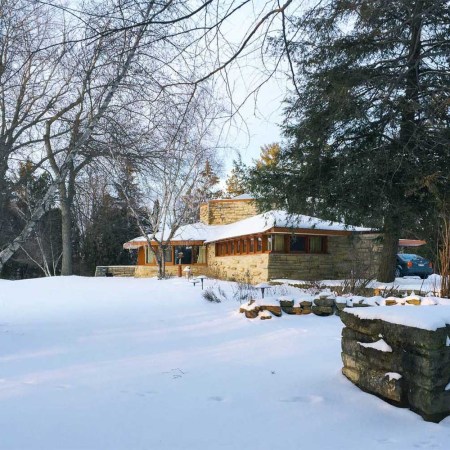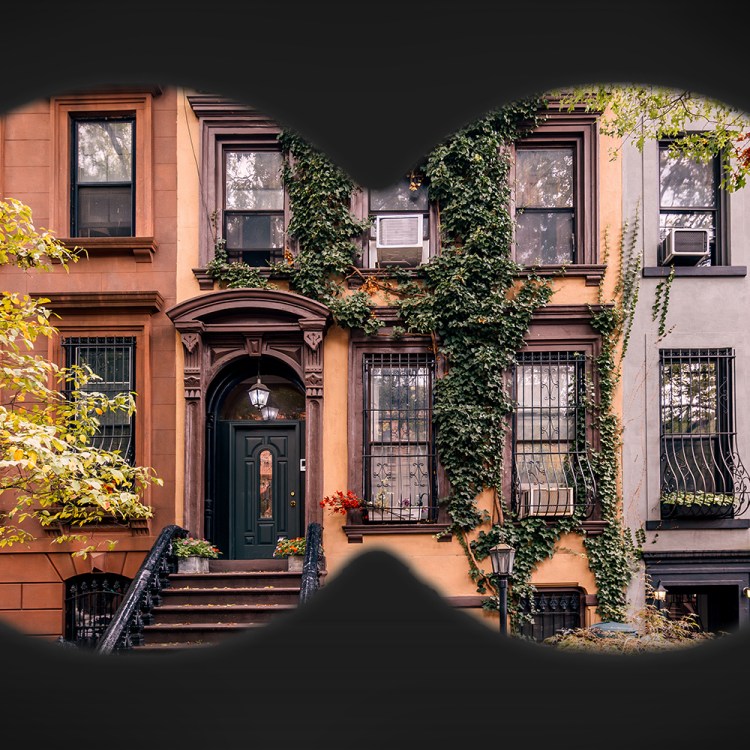There are no new Mozart symphonies to hear or paintings by Mark Rothko to see. Part of the sadness that comes from learning that an artist is gone involves the absence of getting to experience something new from them. At least, that’s how things usually go. But every once in a while, a previously-unseen work by a renowned creator is uncovered, or an incomplete posthumous work gets a technological boost and finds its ending.
When it comes to architects, some of the discipline’s most revered figures left behind a host of unrealized projects. Consider the case of Frank Lloyd Wright, who died in 1959 at the age of 91. Wright’s body of work has many highlights, but it also included a number of projects that were never actually built. And while some unbuilt structures go on to be built long after they were first designed, a significant group remain in a more nebulous state.
In the years since Wright’s death, several museum shows (and some unlikelier venues) have invoked and displayed his unbuilt designs. Unpacking the Archive, an exhibit at MoMA on the 150th anniversary of Wright’s birth, featured a number of designs for buildings that never were. Justin Davidson’s 2009 New York article on a Guggenheim retrospective of Wright’s work alludes to Wright’s 1947 plan for a section of Pittsburgh.
“Wright’s civic-center project was an inspiring and slightly lunatic plan—a Guggenheim Museum on steroids, a vertical strip mall, a pleasure dome that would make a Dubai emir blush,” Davidson writes. Still, it leaves you wondering about what might have been. The Scottish writer Grant Morrison also worked an unbuilt Wright design — in this case, for a city on Ellis Island — into a 2005 DC Comics crossover event.
All told, 660 of Wright’s planned buildings exist only on paper. What happens, though, when decades-old plans converge with present-day technology? Sometimes, the results can offer a glimpse into buildings that never were — and give us a sense of what we’re missing from the Wright archives.
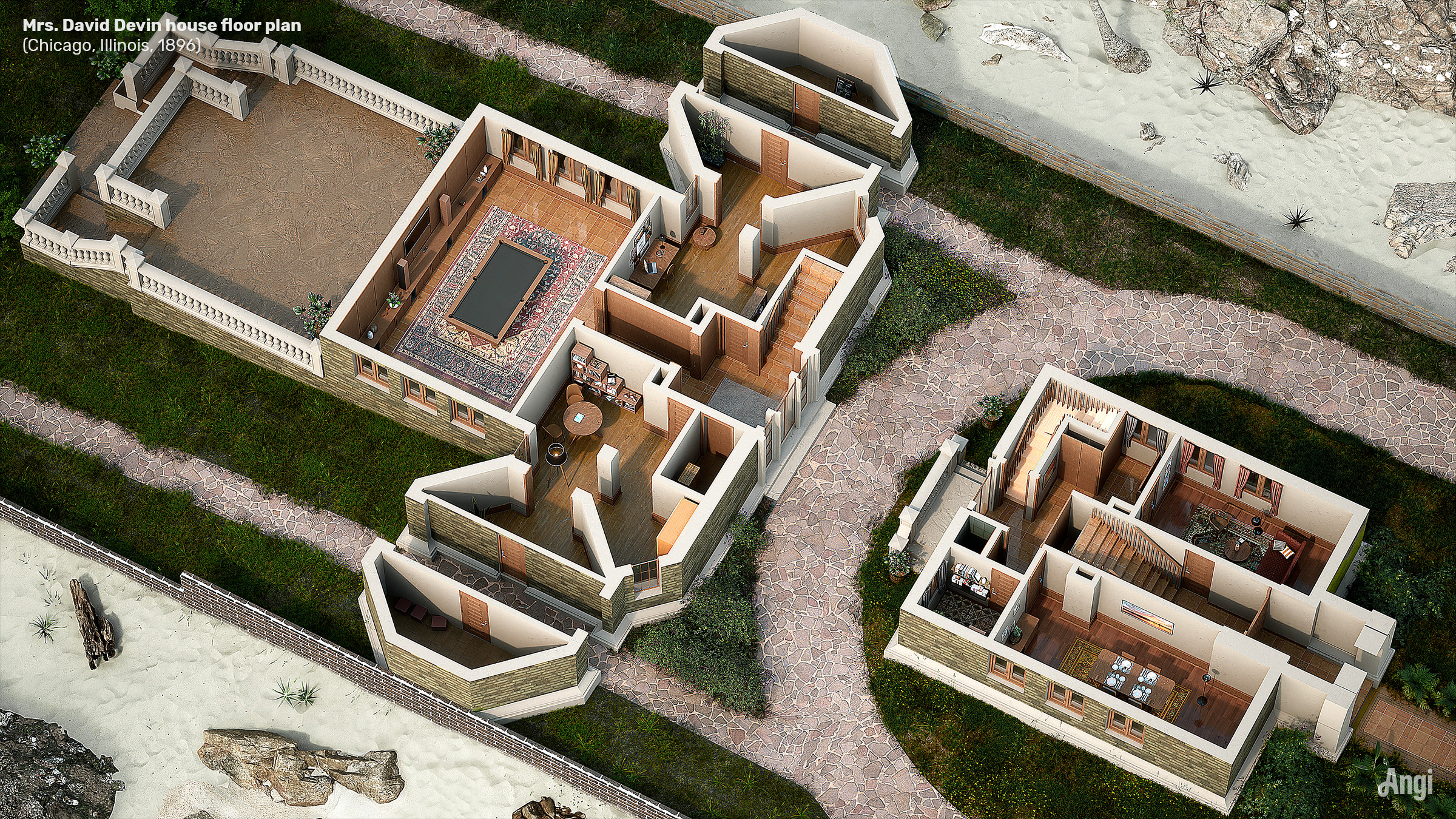
An initiative from Angi applied 3-D visualization technology to show what a trio of Wright-designed homes would look like had they been built. The projects include a lodge at Lake Tahoe and homes for Aline Devlin and Ayn Rand. And while the buildings do not exist in the physical world, these images do a good job of filling that void. It’s worth mentioning that Angi’s project isn’t the only one to fit this description; an ongoing effort from David Romero also seeks to evoke Wright’s designs via modern technology.
“The team were shocked to find out how many Frank Lloyd Wright creations never went as far as to be built,” Kaitlyn Pacheco, Content Editor at Angi, told InsideHook. “That was the moment that sparked inspiration to bring some of Frank Lloyd Wright’s unbuilt homes to life for the first time.”
This blend of old and now required some challenges. “The most challenging part was designing the floor plans,” Pacheco said. In some cases, the team working on this project had to engage in a deeper look at Wright’s work to make a best guess about what might be the most ideal choice for a particular space.
“The design team followed the plans and sketches as closely as possible, but some parts required additional research and an understanding of how existing Frank Lloyd Wright houses are built,” Pacheco added. “With regards to the interiors, the research team took inspiration from famous Frank Lloyd Wright buildings, like Taliesin West and Hollyhock House.”
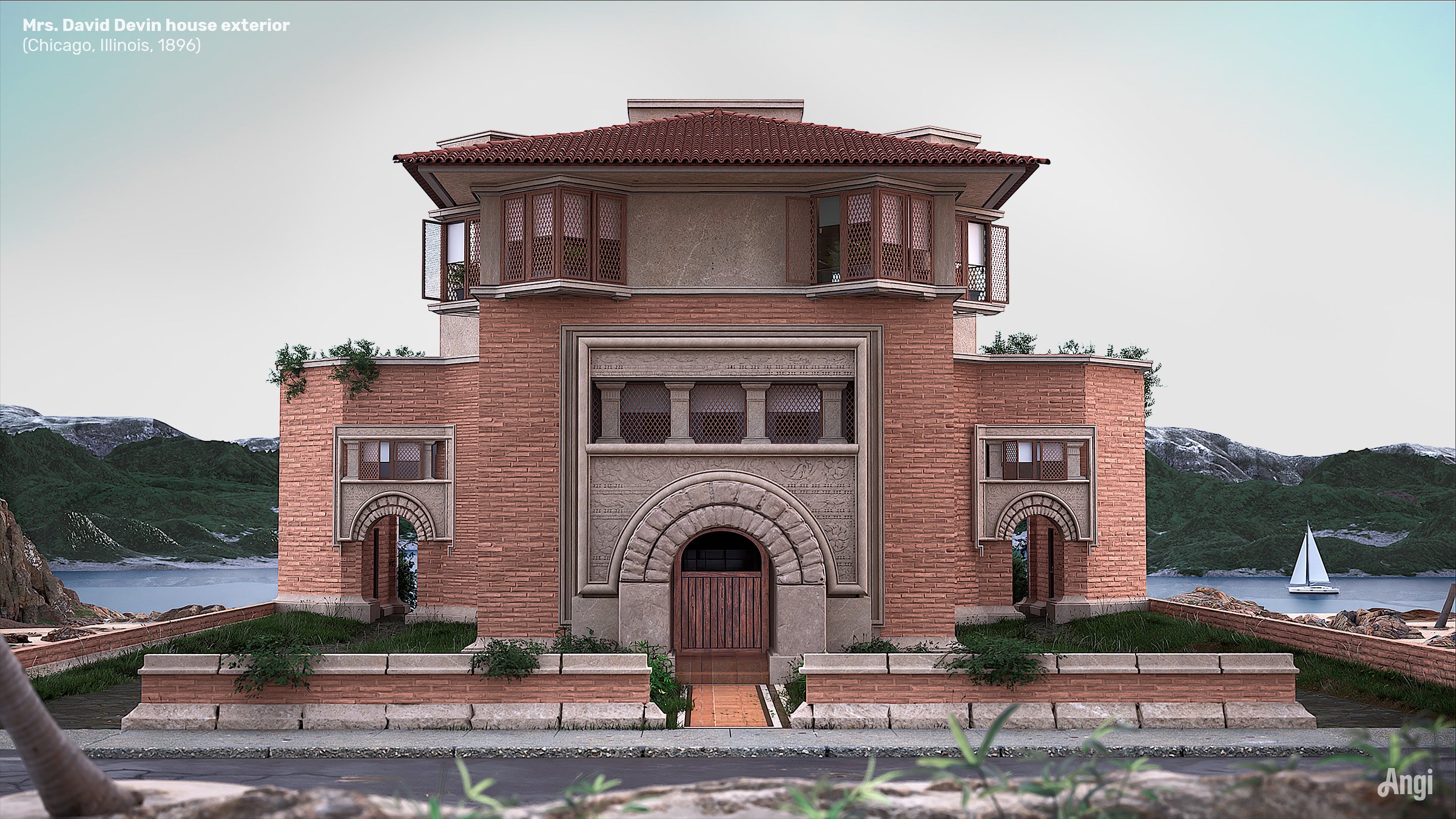
These three projects span Wright’s career, with the design for the Devin home — known as Mrs. David Devin House — dating back to the 1890s, while the lodge and the space intended for Ayn Rand both emerged decades later in Wright’s career, in the 1920s and 1940s, respectively.
Of those three buildings, one stood out as the most difficult to realize. “Mrs. David Devin House was more challenging than the other two to digitally construct, because that particular design looked so different to many of the other houses we’ve seen from Frank Lloyd Wright,” Pacheco said.
But that also had its benefits, ultimately endearing itself to the team engaged in the project. “That one became our favorite because it stands out as different to the typical style that Frank Lloyd Wright is known for,” Pacheco explained.
Working on the project also led the team to have a greater appreciation for architects’ full array of designs, whether built or not. “It made the team realize that Frank Lloyd Wright has a truly impressive body of work and his status as one of the world’s most respected architects was definitely earned,” said Pacheco. “The team also began to feel a deeper appreciation for the versatility of Frank Lloyd Wright’s work, from castle-like structures to modernist homes.”
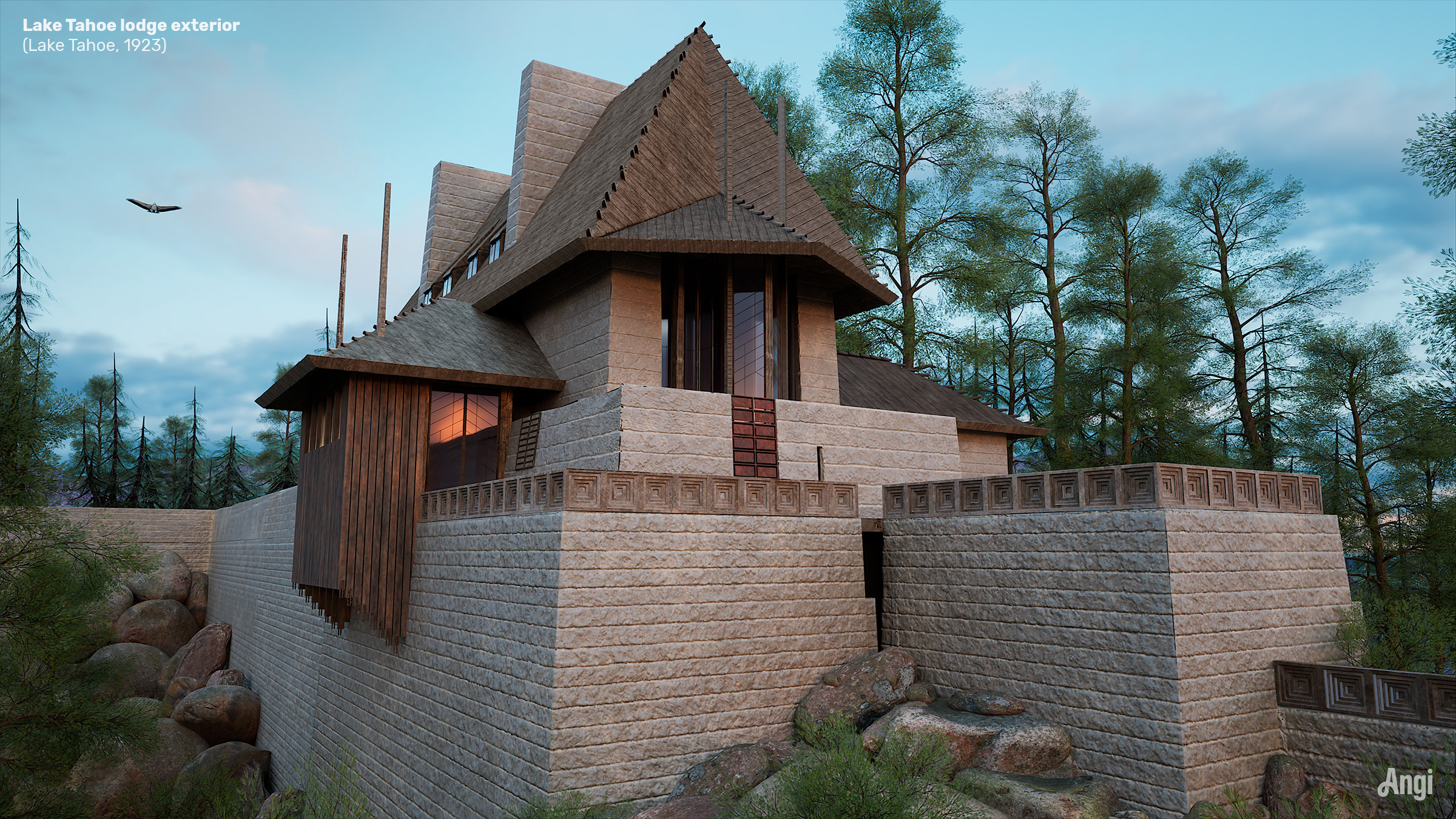
Architects are predominantly remembered by the buildings that they’ve left behind. But this project also serves as a vital reminder that never-built structures also offer their own insights.
“By exploring the unbuilt projects of an architect, people can learn more about who that particular architect was and build a bigger picture of their career,” Pacheco said. “Sometimes it’s the dusty unused plans that really bring an artist’s vision to life and attract more fans long after the artist has passed away.”
Could some of these designs end up manifesting in the physical world? It wouldn’t be unheard of: in 2013, a house Wright designed in 1939 was built on the campus of Florida Southern University. Perhaps these particular renderings are just a few years away from being realized somewhere in the world.
This article was featured in the InsideHook newsletter. Sign up now.
